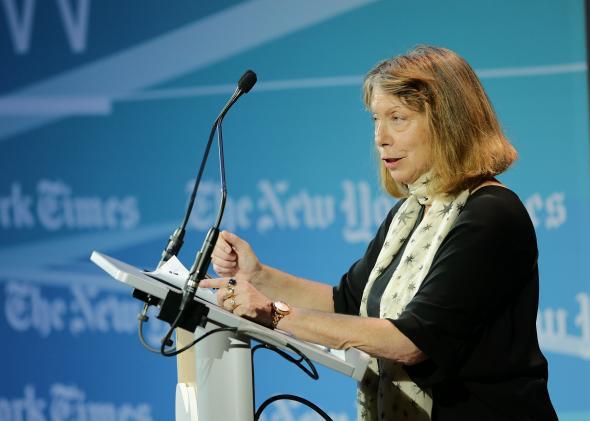As my colleague Mark Joseph Stern writes, there are now reports that the New York Times might have fired executive editor Jill Abramson in part because she confronted management over earning less pay than her male predecessor, Bill Keller. If true, this tale might just be every woman’s professional nightmare come to life.
Whatever the reasons for her abrupt departure, by pretty much any meaningful measure, Abramson seemed to be doing an excellent job piloting the Times into a bright digital future.
Consider: Bill Keller led the paper from 2003 until mid-2011. During that time, its finances degenerated so thoroughly that the company was forced to borrow a glorified payday loan from Mexican oligarch Carlos Slim. Near the very end of Keller’s tenure, however, the Times finally began implementing the online paywall that’s resurrecting its business. It has almost 800,000 digital-only subscribers—the vast majority of whom have been acquired on Abramson’s watch—and is now turning a decent operating profit.
Abramson also seemed committed to pushing the Times even harder on digital. She fully endorsed an internal report advising the paper to create a new senior editor position to handle growing the paper’s online audience. She even tried to take initiative and hire a digital head without consulting her managing editor, Dean Baquet—now her replacement—and this was reportedly one of the factors behind her undoing.
These sorts of major firing decisions sometimes have an internal logic that isn’t clear to the public. But from the outside, it’s hard to tell what on earth management was thinking. As the Times might put it: After an Editor’s Firing, Questions About Sexism Arise.
